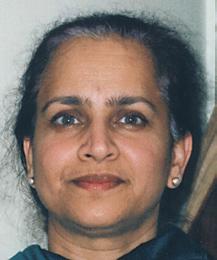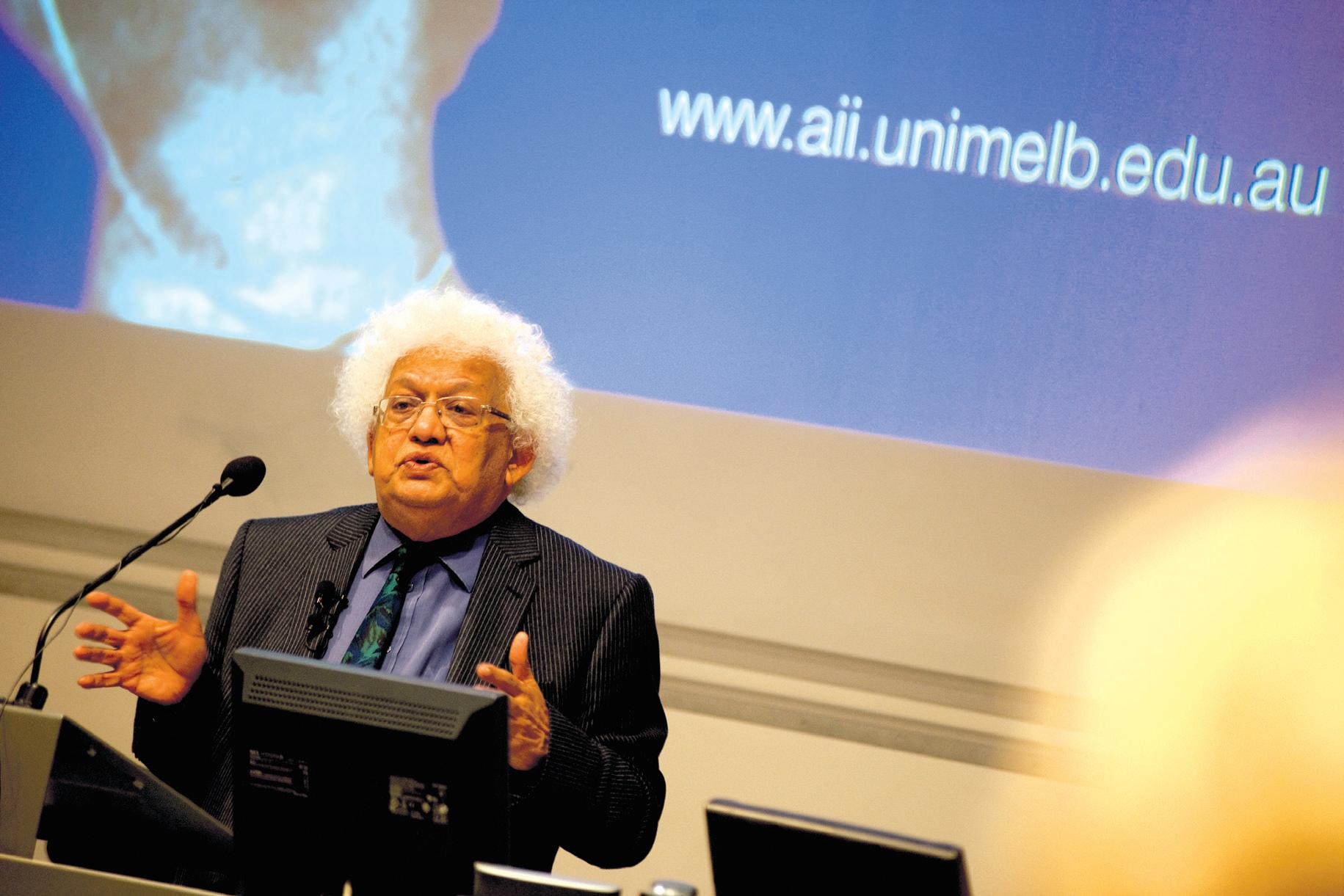
3 minute read
How sustainable is the Indian miracle?
from 2012-08 Sydney (1)
by Indian Link
These have led to a fall in the usually quite high savings rate in India.

BY CHITRA SUDARSHAN
Professor Meghnad

Jagdishchandra
Desai - or Baron
Desai of St. Clement
Danes - is an Indian-born British economist and Labour politician, who was awarded the Padma Bhushan in 2008. He was invited by the University of Melbourne’s Australia India Institute (AII), to deliver this year’s Satyajit Ray Memorial Lecture. Prof. Desai chose to speak about the economic crossroads at which India finds itself now, and whether India can pick itself up and keep going. Can the Elephant run any longer? was the title of the lecture at the Law Faculty lecture theatre in early July.
Baron Desai gave his verdict to a rapt audience - eloquently drawing on a range of anecdotes, historic events and theories. Two things he made clear: first, that capitalism is here to stay, and for all practical purposes it is the only economic system that survives and will survive. Second, that all things said and done, politics is what matters, even when it comes to economics; that the decisions made by political leadership at crucial moments are what determines the direction of economic change in India.

Baron Desai began by briefly sketching the impressive economic growth trajectory of India and China in the last decades. Theirs - and the rise of the Tiger Economies of Asia, were based on the old model of growth: hard work, savings and investment. Indeed, it is Asia that embodies the young, dynamic capitalism of today, while the one in Europe is an unenviable, aging and decrepit. India’s exponential growth is really a twenty first century phenomenon, and despite nostalgia in some quarters for the 1960s-style socialism or for a ‘third way’, there is a general consensus in favour of economic liberalisation. However, India is now at a crucial stage of growth - despite the fact that it rode the first wave of global recession without a great deal of trouble. Its growth performance since 2009 has been lacklustre with rates hovering well below 7%. It may well fall to 5% in 2012. Besides, inflation is unacceptably high, exceeding the growth rate. For the first time in post-Independence history, the Indian government does not have an active antiinflation strategy to combat it.
The reasons for the failure of the government to respond to the current economic challenges are several. The UPA-II government has been indecisive and has dithered in the face of major problems. Baron Desai believes that this has been induced by some major failures. One is their wrong reading of the reasons for their election victory in 2009; the Congress interpreted its election victory over the BJP as an expression of a popular backlash against the pace of economic liberalisation. This however, is quite incorrect. But as a result of this false belief, it has reneged on further reforms. Secondly, the UPA-II government has been riddled with corruption and scams which have eroded its credibility and its ability to be decisive. Third, the division of power between the Congress party headed by Sonia Gandhi, and the government led by Mammohan Singh is so skewed and stilted that it has led to several problems.
For all the above reasons, the government has been hit by a political paralysis of sorts: decisions on further reforms such as the liberalisation of the retail section for example, are being shelved; and the backflip on the 3G scam has introduced a feeling of economic and business uncertainty that has frightened Indian businessmen. The government is being seen as indecisive and cowardly. This has been at the root of the poor economic growth in the last couple of years in India.
What does Baron Desai see in the years ahead? Will the political impasse and paralysis be broken in 2012 when the next national elections are due? Will the UPA be elected again, or do the BJP’s prospects look better? His prediction is that both the national parties will do badly and together will secure less than half the seats in parliament, which will lead to a Coalition of Third parties. There are strong and performance-oriented State Chief Ministers such as Nitish Kumar in Bihar, Modi in Gujarat, Jayalalitha in Tamil Nadu, Patnaik in Odisha - and equally efficient ones in Rajastan and Madhya Pradesh as well - who may be the face of a new coalition at the centre. This may well lead to greater devolution of power to the states, and that may not be a bad thing at all.
Indeed, it is Asia that embodies the young, dynamic capitalism of today, while the one in Europe is an unenviable, aging and decrepit.










